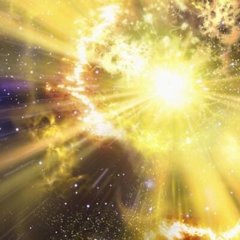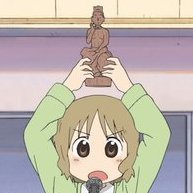
Mig
The Dao Bums-
Content count
785 -
Joined
-
Last visited
About Mig
-
Rank
Dao Bum
Recent Profile Visitors
3,791 profile views
-
A few books about what? Which books are you referring to?
-
Not sure what you mean about agglunative language? Any examples to share? What I have noticed recently is the use of single syllables like instead of using two syllables words like kuaile: happy and say le only.
-
Thanks and understood. What books would you recommend to get the general theme?
-
What was good about Graham translation? What did you learn from Graham that other translations didn't cover? Was that helpful to understand what Daoists preach or talk about Daoism?
-
Which English translation will you recommend to read Lièzǐ 列子? And what did you learn about his writing and why one translation and not another one. Thanks
-
After reading many postings about Daoism, the DDJ, ZZ, LZ etc. I was wondering for all the scholars in this forum, is it necessary to know modern Chinese and classical Chinese to read those classics? or it is no necessary to learn none but rely entirely on every English translation since the concepts or messages in those books are just normal concepts or advises that are natural in humans all over the world. If I read the DDJ or ZZ, I can understand the sentences in a translation but I don't have a clue of the meaning, structure or hidden message in each chapter. If I find an explanation or commentary of each chapter and the point of view of a scholar well versed in Daoism then I understand the reason why. The problem becomes tricky when everyone has one opinion and their opinion is based on religious or an academic point of view. The famous dichotomy of religious and philosophical Daoism is seen from differently from the point of a native scholar. And reading those Daoists books, I realize that is important to learn about Confucianism and then bingo! I can see how terms, concepts or ideas had evolved after their time until the Tang and Song dynasty and how those texts were interpreted later by Buddhists, Confucians and Daoists. So is it necessary to learn Chinese or not to read or understand (to practice in life) the old classics?
-
What is your criteria to assert that it was not out of an imposed design? Wasn't the written script arbitrary imposed to pronounce words?
-
Interesting posting and the Quora answers are so diverse and I can smell the academic flavor of their lingo. It is true the importance of tones but common people don't talk like that, in conversation their sentences are fluid and when they speak very fast, it is only the context that helps in the conversation, an example is the crosstalk stand up comedy type where they speak fast, or even when they sing songs where tones are not necessarily used formally . As for tones in ancient Chinese, who knows what happened BC. And this made me wonder, were the DDJ or lún yǔ written using tones or was it a tendency for the language to become monosyllabic then tones evolved? Again, as for tones, it seems to me that there is this academic explanation, which I understand why, but tones as Kaiser Kuo mentioned in the Quora intervention, "dude" can use tones for the 4 tones in modern Chinese. Now, I have never understood when I hear native Chinese speak the standard language, I can hear stress or intonation in a sentence and tones are not necessarily used unless disambiguation to clarify the meaning of a word whether is one syllable or two syllables words.
-
I guess I understand better the sentence as the real person's breathing reaches down to their heels which makes sense if I breath using the dantian. It seems that is the practice developed from Daoists and Yogis traditions. More common in Taijiquan in their early writings.
-

Could anyone introduce me to the basics of daoism?
Mig replied to NaturaNaturans's topic in Daoist Discussion
How good is that book as an introduction to Daoism or Eastern philosophy ? From the vinegar tasters to the old master and the master Zhuang, what's that all about? -
Great and thanks. Any reason of why 節; jié was included?
-
Since you mentioned Jujitsu (I avoid the Brazilian tag name because of the trend) and I had practiced southern Chinese boxing, I found those strengths that are popular in many martial arts circles which have been influenced by the rújiào 儒教 the scholars (Confucianism) and the folk religion which includes Daoism and Chán Buddhism. Thus, I try to understand where those ideas came from and why people use them in their practice or teachings.
-
I couldn't find where the 四字 came from in the traditional Confucianism. Any sources you can share to explain the reason of those four which includes 節; jié ?
-
I think the problem is about the translation and the use or misuse of the word "nature". And most likely it comes from a sentence from the 淮南子 原道訓: ...修道理之數,因天地之自然,則六合不足均也。 the man who conforms to the art of the Tao, in accordance with the natural way of Heaven and Earth, would find it easy to manage the whole world. I am pretty sure that my inquiry has been made in the past or for thousand years and my observation is that it gives me the impression is that if Daoist say follow nature is idealistic and chose arbitrarily images or concepts to make sense of their message. Unfortunately hippies, post hippies and then new age people have used it as a porte manteau word to sell whatever idea that sounds cool
-
What is the closest sentence, explanation in Chinese? I see your example of flood, what about earthquakes, tornadoes, tsunamis. Is there any mention of how follow nature in Chinese?








